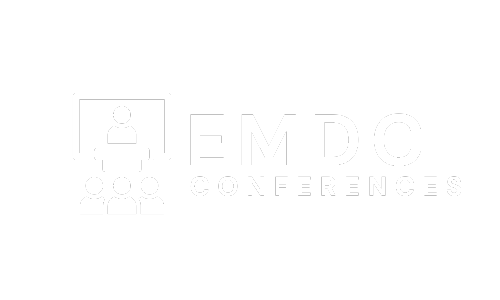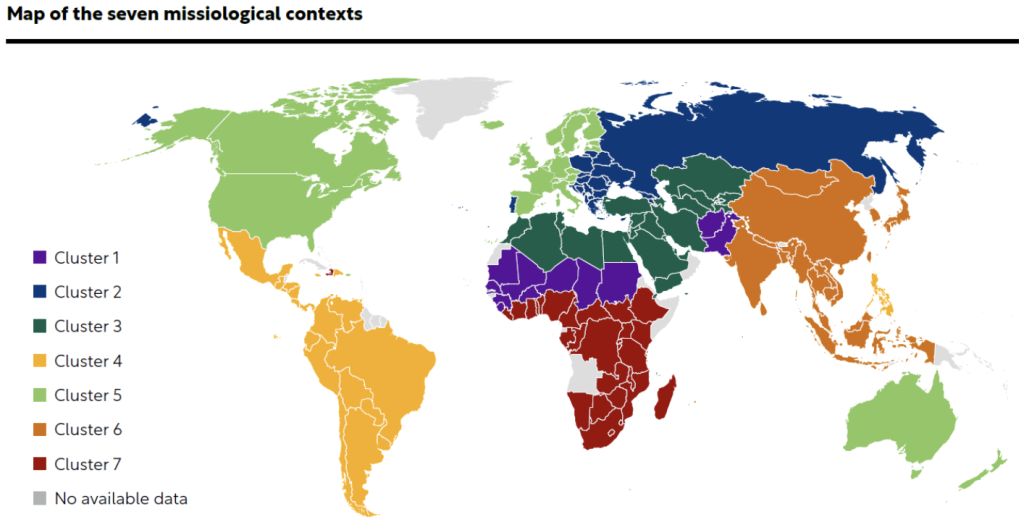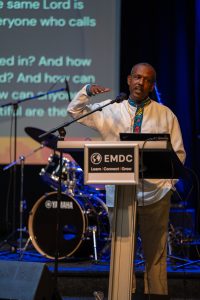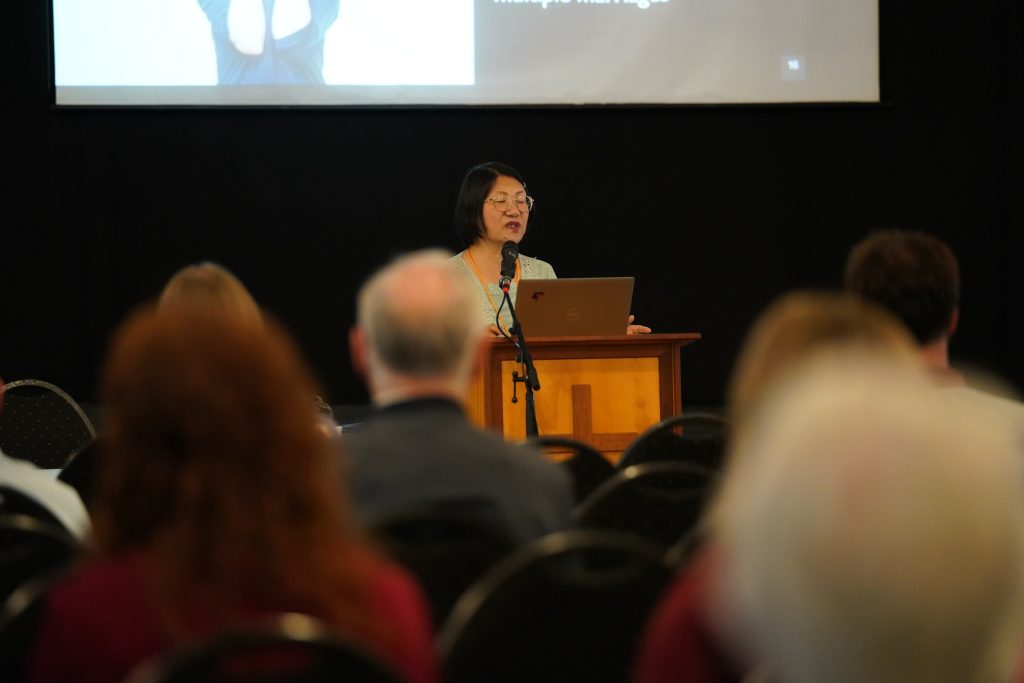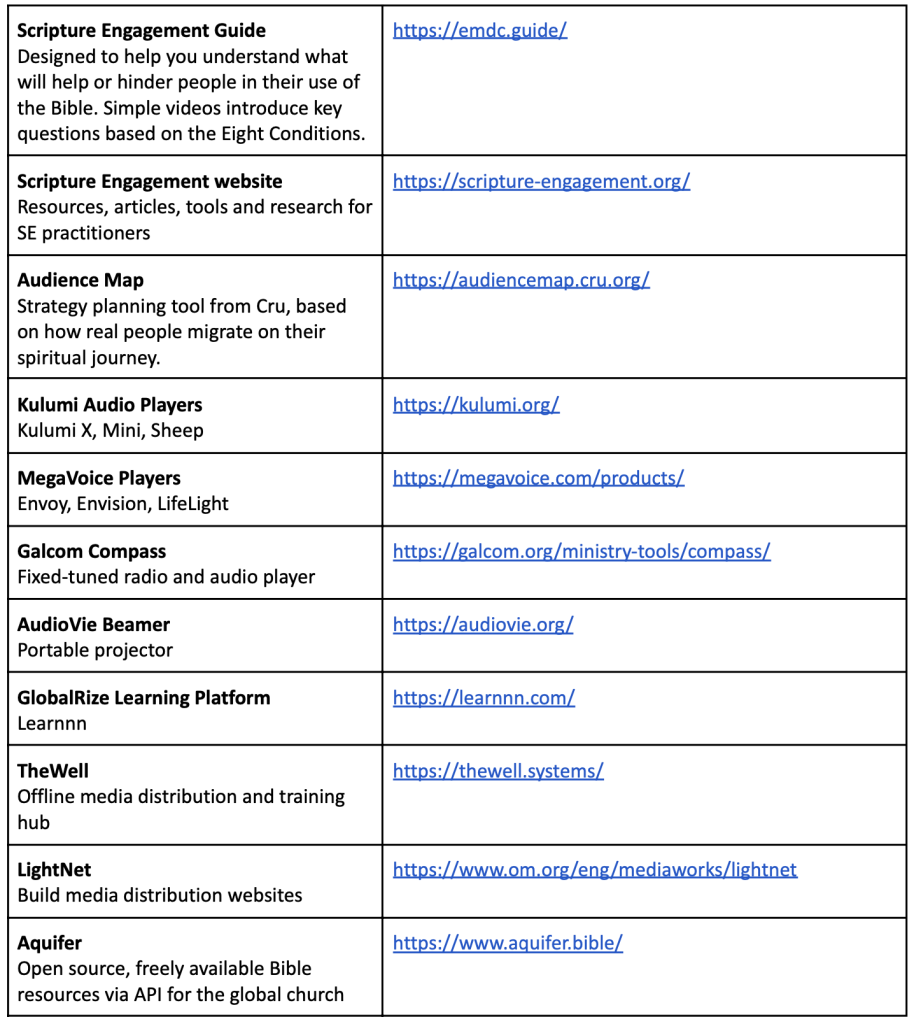EMDC 2025 Executive Summary
The EMDC (Eurasia Distribution and Media Consultation) conference took place from 14 to 22 May 2025 in the Netherlands, bringing together 430 people from across the world, workers based in local communities and resource trainers and developers involved in Scripture engagement, media, EthnoArts, trauma healing and language technology. Around 175 organisations and 57 countries were represented.
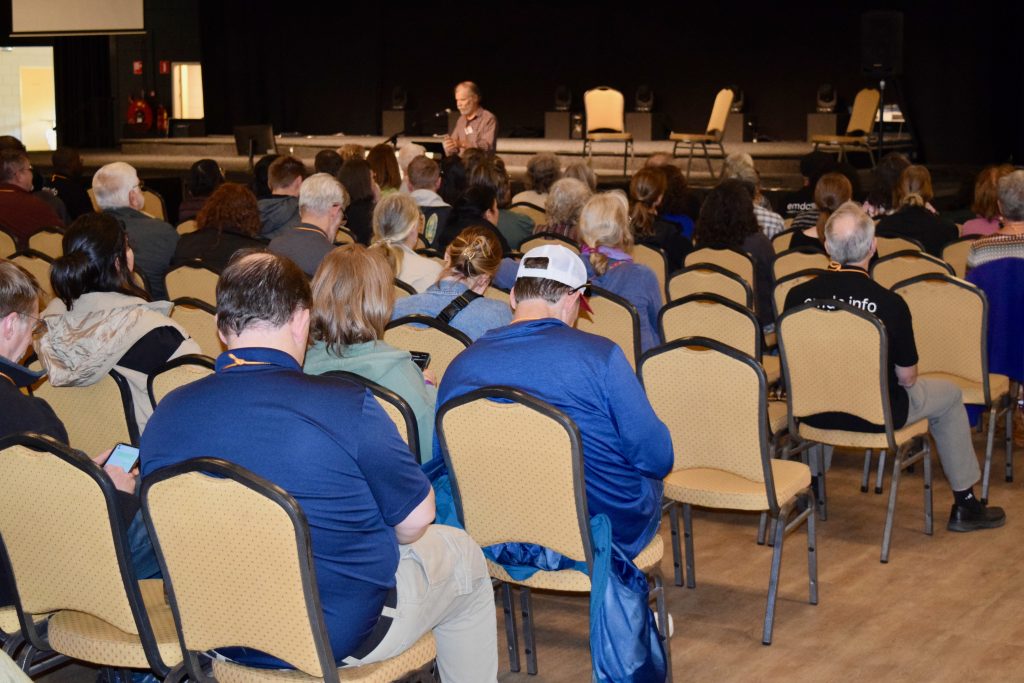
The main conference was preceded by four days of training (Pre-EMDC) with a choice of eleven training tracks.
- Audio/Radio Technology
- Making Meaningful Media
- Culture Meets Scripture
- Scripture App Builder
- Scripture Engagement
- Cross Cultural Mentoring
- Kalaam Media
- Simply the Story
- AI Tools
- Trauma Healing Story Based
- Oral Bible Translation Tools and Training
It was an excellent opportunity to encourage collaboration and partnerships between organisations and to share ideas and resources that we can use in our different contexts. For many of us, the networking opportunities and meetings during meals and breaks are among the highlights and most fruitful aspects of being together.
Here is a selection of themes from the conference. It really just scratches the surface of the topics covered, but hopefully it will give you a taste of EMDC.
1. Plenary sessions
Where do we go with the Gospel?
Dr Joanna Heath from the British and Foreign Bible Society presented a plenary session on the research findings of the Patmos World Bible Attitudes Survey (patmos.bfbs.org). This is the biggest survey ever conducted on attitudes to the Bible around the world, with 91,000 people interviewed in 85 countries.
The countries of the world were divided into seven clusters.
For each cluster, a number of different audience segments were identified. The research report devotes a page of data and analysis to each of these segments for the given cluster, giving details of how each sector views the Bible and faith, and how open they are to learning from those who think differently.
Here are some points of interest:
- Christians in Sub-Saharan Africa and Latin America are most engaged with the Bible.
- 64% of the world’s population is not interested in learning more about the Bible. 89% of non-Christians are not interested.
- In Asia, 9 out of 10 Muslims and 8 out of 10 Hindus say they have no knowledge of the Bible, with many saying they have never heard of it.
- 43% of those who identify as Christians hardly ever use the Bible. Many of them do not see the Bible’s relevance, especially in the secular West.
- In Eastern Europe there is a sharp drop-off in interest among the younger generation, with relatively low levels of Bible ownership. In the West, however, the younger generation is showing more interest.
- 11% of people who have never heard about the Bible would like to know more about it (240 million people), and 20% of those who are non-religious would like to know more about the Bible.
Bible Societies around the world are engaging with the findings. They are choosing key audience segments in their countries, discussing how to attract these audiences, how to sustain relationships, how to relate the Bible to questions and needs, and how to facilitate a deepening engagement with the Bible.
You can download the full report from https://patmos.bfbs.org, and join a discussion forum.
How do we go with the Gospel?
Dr Sue Barclay from All Nations Christian College asked us, “What criteria do you use to decide what to do?”, “What is right?” and “What do we need to take into account?” She called for joined-up Christian living and mission, displaying right actions, intentions, outcomes and relationships.
We looked at value statements from secular and Christian organisations, and saw that our values (formed by God’s Word) need to influence our plans and our practice. The “how” of mission is vital, and there are tools we can use to help us examine a situation and make right choices. We need to be intentional, integrated (building the process into our planning), and inclusive (involving the whole team and partners in our theological reflections) – prayerfully living out what we believe with integrity and authenticity.
With whom we go with the Gospel?
Jon Ralls from Kavanah Media led us in examining some of the realities in our digital world, seeing the need for discernment in the age of digital surveillance. We must be aware of the risks of being manipulated, as more and more data is collected on our behaviour, with the power to shape our thinking and actions.
We live in a “VUCA” world, marked by Volatility, Uncertainty, Complexity and Ambiguity. There is a lot of change and waves of interest in what is new. This brings new opportunities, but all opportunities come with risk. This means we need understanding and adaptability, and a healthy attitude to risk in our attitudes, behaviour and organisational culture.
Although our mission and God’s Word do not change, our methods need to mature in order to guard integrity, protect the message and reflect Jesus. We need to be wise, humble, ethical and faithful. The gospel is too precious to entrust to algorithms.
2. Breakout sessions
This year’s breakout sessions focussed on the following topics:
- Media production and communication:
- Practical advice on video production: filming testimonies and interviews, finding fascinating stories, scriptwriting, casting actors for your movies.
- Ethics in photographic and video storytelling.
- Virtual recording of Scripture texts.
- Animation in missions.
- Technology and tools for ministry:
- New gadgets and technologies for Scripture engagement.
- Strategy planning tools, such as the Audience Map from Cru.
- Artificial Intelligence: AI tools, using AI in ministry and in Bible engagement.
- Software for Bible translation, publishing and media production: Paratext, Bloom, Audio Project Manager.
- Apps: YouVersion, Scripture App Builder, Pattern platform.
- The Aquifer and free availability of Bible study and translation resources.
- Cybersecurity strategies.
Bible translation and Scripture engagement approaches:
- Oral Bible Translation and Church-Centred Bible Translation.
- Scripture engagement research, defining and measuring SE.
- Digital Bible engagement and disciple-making.
- Culture and context:
- Honor and shame, ancestor veneration, culture meets Scripture.
- Diaspora communities.
- Understanding human trafficking.
- Reaching the persecuted church.
- Orality and Arts in mission
- Bible storytelling
- Psalms that Sing.
3. Latest Films
On Monday and Tuesday evenings, we held our popular film preview nights, looking at some of the films that have been produced recently around the world. On Tuesday, there was a special focus on films made in Africa. These are films that have been made in different cultures, together with speakers of local languages.
Here are some of the films featured this year:
Je vois rouge (I See Red)
Two brothers are caught up in a cycle of revenge. When Katari curses her brother with a talisman, Seira loses her voice. Ashamed and alone, Seria loses hope for his future. His mother, a follower of Isa al-Masih, prays for him and shows him that there is power in the name of Jesus.
This film, shot in Sokodé, Togo, is a powerful testimony to the Tem Kotokoli people.
https://createmobile.org/film/tem/
The Motorcycle Thief
What would you do if you met the man who robbed you? Could you forgive him? Can a thief ever change?
In the Yao language of Malawi and Mozambique, with English subtitles
The 21 Film
The 21 is a short animated film shaped by neo-Coptic iconography, produced in collaboration with the global Coptic Community by a team of 70+ artists from more than 24 countries.
It honours and retells the story of the 21 Coptic Christians who were murdered by ISIS in Libya in 2015.
Languages: English and Arabic.
Come and See: Glimpses of Trauma Healing at Dzaleka Refugee Camp (SIL Global Diaspora Services)
Life Hurts. God heals. Come and bear witness to the transformational work of Trauma Healing that is spreading throughout Dzaleka Refugee Camp in Malawi, Africa. Not only are refugees in the camp engaging and understanding Scripture in powerful ways, they are training and empowering others to flourish with them in community using the languages they value most.
https://emdc.blog/diaspora/come-and-see-glimpses-of-trauma-heali ng-at-dzaleka-refugee-camp/
You can find more films on Create Mobile’s website here: https://createmobile.org/projects/
4. Other Tools and Resources
It is easy to come away from EMDC with a very long list of resources and contacts. Every day, over twenty people had the opportunity to present at “Minute at the Mic”, and many organisations had booths and display tables.
Here are some links to resources you might find useful:
5. AMDC – EMDC in Africa
With the growth of the mission movement in Africa, more Africans are wanting to participate in EMDC. However, it is becoming more difficult to obtain visas for places like the Netherlands and many visa applications were refused this year. Because of this, we are investigating the possibility of holding “AMDC” (EMDC in Africa) in the future. A committee has been formed, chaired by Dr John Ommani of SIL, including representatives from several of the organisations from Africa represented at this year’s EMDC. The committee is considering what it would mean to hold an EMDC event relevant to Africa and has started to investigate possible times and venues.
6. Next year’s EMDC
In 2026, EMDC will be held in Chiang Mai, Thailand, from 13 to 26 May. For more information please see: https://emdc.info/events
—————–
Such a big event means a lot of people working together to make it possible: event logistics, plenary speakers, worship team, training track facilitators, devotion speakers, breakout presenters, accommodation and catering, sound and IT, etc. Many thanks to the organizations and individuals who volunteered their time and resources, the EMDC steering committee and the EMDc logistics and planning team.
May God bless us with much fruit and many ongoing partnerships as a result of this year’s conference!
Steve B and Richard M for the team

